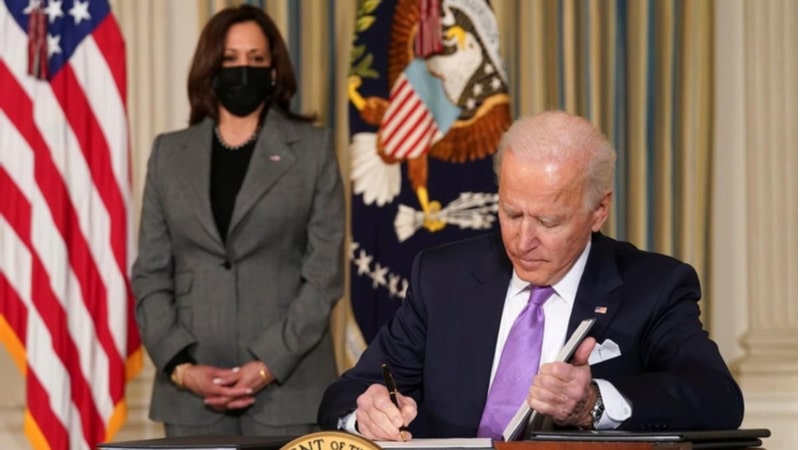
President Biden today signed an executive order to jumpstart implementation of the CHIPS Act – one of the centerpieces of the Chips and Science Act approved by Congress earlier this month.
The CHIPS Act portion of the legislation provides $52 billion of funding to incentivize semiconductor makers to establish new manufacturing plants in the United States.
The order signed today aims to “effectively implement” those incentives in collaboration with state, local, and Tribal governments, the private sector, academia, labor unions, and allied and partner countries.
The primary function of the order is to establish a new CHIPS Implementation Steering Council that will “coordinate policy development to ensure the effective implementation” of the law.
Co-Chairs of the new council will be Daniel Hornung, assistant to the President for economic policy; Jake Sullivan, assistant to the President for National Security Affairs; and Dr. Alondra Nelson, who heads the White House Office of Science and Technology Policy.
The council will also include the secretaries of State, Treasury, Defense, Labor, Commerce, Energy; Office of Management and Budget Director Shalanda Young; Isabella Guzman who heads the Small Business Administration; Director of National Intelligence Avril Haines; and National Cyber Director Chris Inglis, among others.
The order says that OMB Director Young “shall take appropriate actions to promote and monitor” how the CHIPS Act is executed including oversight of taxpayer resources.
Separately, Information Technology Industry Council (ITI) President Jason Oxman said in an August 24 letter to Commerce Secretary Gina Raimondo that the trade group stands ready to support the “smooth implementation of the law.”
“Because semiconductor fabs can take many years to build, it is important that the Department acts swiftly to stand up the semiconductor incentive grant funding program,” Oxman said. “We welcome President Biden’s Executive Order to expedite the process and take needed steps to ensure the law is successfully implemented, which is essential to fill gaps in existing production capacity and help alleviate future production shortages.”
